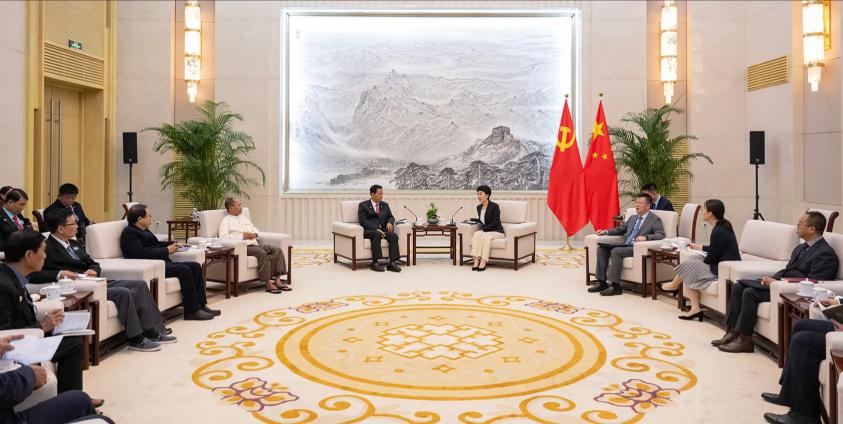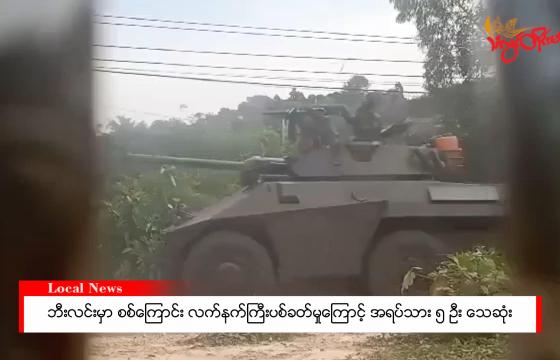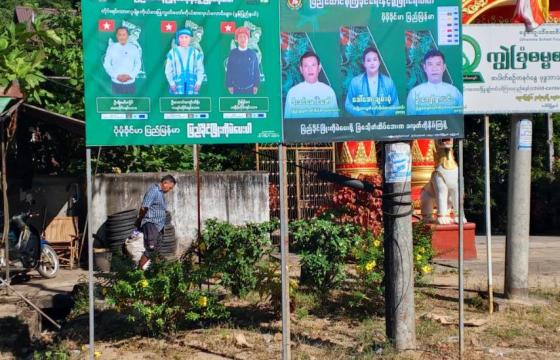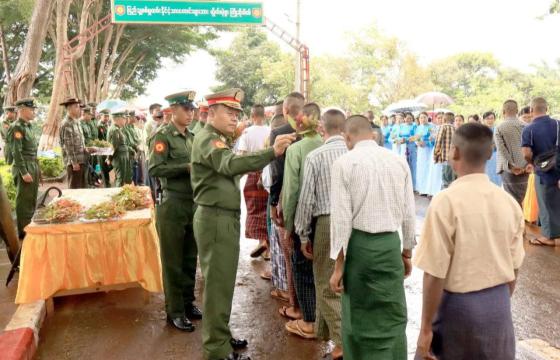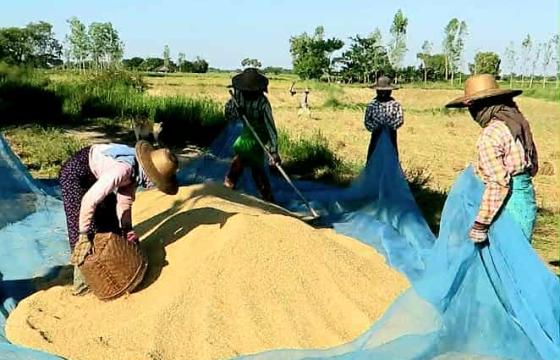During a recent visit to China, four junta-aligned political parties strongly urged Chinese authorities to expedite the implementation of the Haigeng Agreement. This agreement, brokered by China, aims to secure a ceasefire between Myanmar's military junta and the Three Brotherhood Alliance.
Invited by the Chinese Communist Party (CCP), the Union Solidarity and Development Party (USDP), Bamar People's Party (BPP), Arakan Front Party (AFP), and Shan Nationalities Democratic Party (SNDP), also known as the White Tiger Party, visited China from July 20 to 27.
During their visit, the political parties pressed China to accelerate the Haigeng Agreement's implementation. This agreement, mediated by China, was established between the junta-backed National Solidarity and Peacemaking Negotiation Committee (NSPNC) and the Three Brotherhood Alliance. Dr. Aye Maung, Chairman of the AFP, emphasized the importance of China's continued engagement.
"The agenda guided by China focuses on the Three Brotherhood Alliance and the initial aspects of the Myanmar peace process. We urged China to continue engaging with the NSPNC in all discussions and solutions and to expedite the implementation of the Haigeng Agreement. We also asked China to push for the realization of the sixth edition of the Haigeng Agreement. Resolving Myanmar's political issues through dialogue will be beneficial for China. Political stability in the region is crucial, and we presented and discussed these points," Dr. Aye Maung said.
Currently, two member organizations of the Three Brotherhood Alliance, the Myanmar National Democratic Alliance Army (MNDAA) and the Ta'ang National Liberation Army (TNLA), have allied with People's Defense Force (PDF) factions in the second wave of 'Operation 1027.' They are conducting offensives against the junta in northern Shan State and the Mandalay Region.
During these operations, the Alliance's coalition forces captured the ruby-mining hub of Mogok and other towns such as Nawnghkio (Naungcho) and Singu. Additionally, the strategically important town of Lashio, home to the junta's Northeastern Command Headquarters, has also come under the control of the MNDAA.
Chinese Foreign Ministry spokeswoman Mao Ning announced at a press conference on July 25 that China will work to facilitate the ceasefire agreement and accelerate peace talks in northern Myanmar.
Following this, the MNDAA's Military Committee issued a statement on July 27 affirming its respect for China's mediation policy and committing to ending the fighting as soon as possible and building peace.
These developments have led to speculation that a sixth round of talks, mediated by China, could take place in Haigeng on July 31 or August 1, between the junta and the Three Brotherhood Alliance.
The Than Lwin Times contacted the TNLA, a member of the Three Brotherhood Alliance, to inquire whether further discussions might take place in Haigeng due to China's intervention. However, a TNLA spokesperson replied that it was not yet known.
U Than Soe Naing, a political analyst, stated that the prospect of another Haigeng discussion largely depends on the attitude of the coup leader at the National Defense and Security Council (NDSC) meeting, which the junta will convene at the end of July, noting that if the junta remains stubborn and maintains its strongman stance, there may not be any constructive outcomes in the sixth edition of the Haigeng dialogues.
"The answer to whether the talks in Haigeng can end the ongoing clashes in northern Shan State will largely depend on the NDSC meeting held by the junta on July 31. In Myanmar, China hopes for a move by the junta to hand over power to a more moderate civilian quasi-interim government. It remains to be seen if coup leader Min Aung Hlaing will align with China's wishes or choose to resolve issues militarily while maintaining the current violence. If he continues his tough stance, significant changes in the upcoming Haigeng talks are very unlikely," he elaborated.
Since last October, the junta has suffered a series of devastating setbacks due to the Three Brotherhood Alliance's lightning offensives in northern Shan State, losing dozens of towns and villages as well as hundreds of military bases and outposts. In response, the desperate junta sought China's intervention and held five rounds of talks in Haigeng.
During the third round of talks, the Haigeng Agreement was reached on January 11, establishing a ceasefire in northern Shan State.
After that, two more rounds of talks were held in Haigeng between the Three Brotherhood Alliance and the junta concerning the fighting in Arakan (Rakhine) State, but no new agreement was reached. On June 25, the second wave of 'Operation 1027' began, and clashes reignited.

